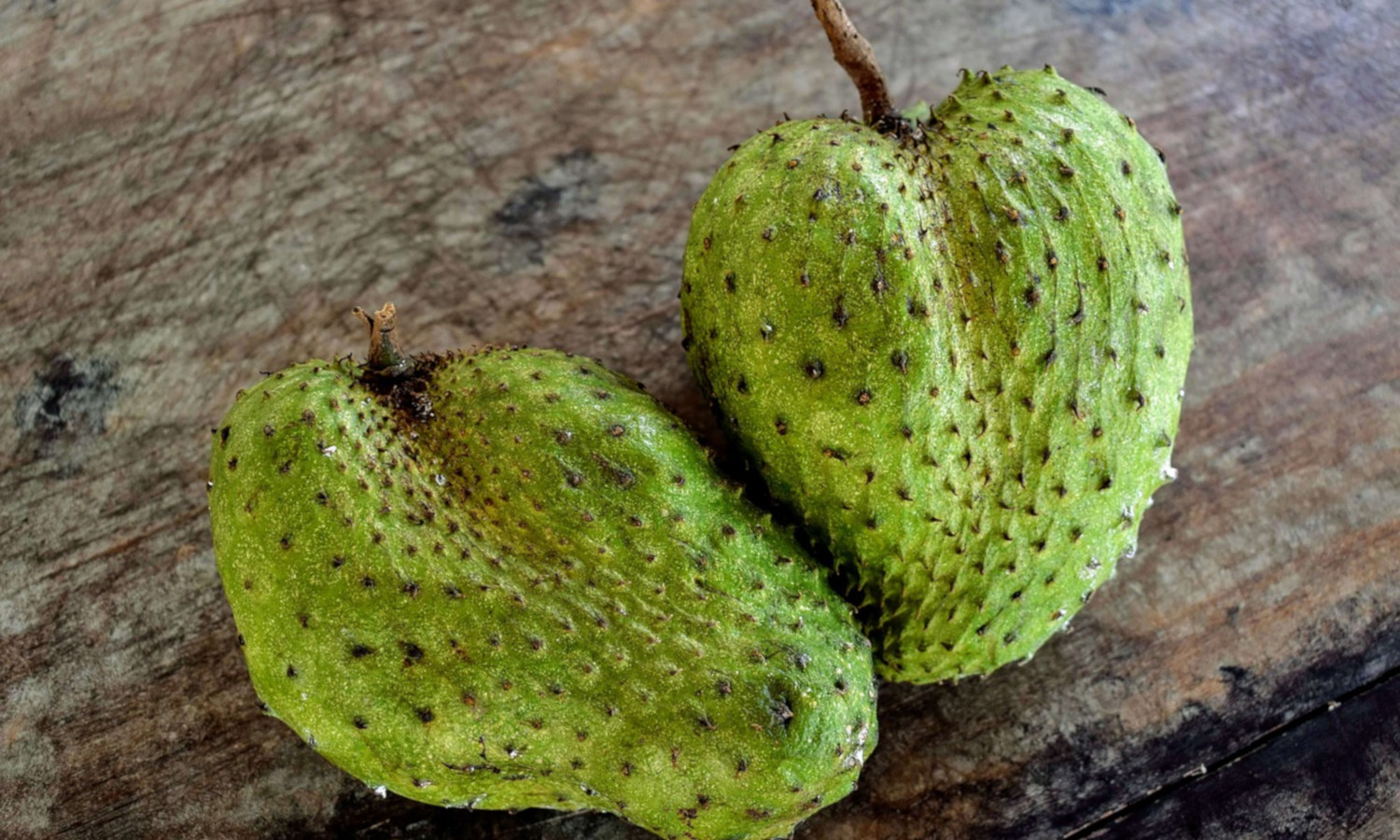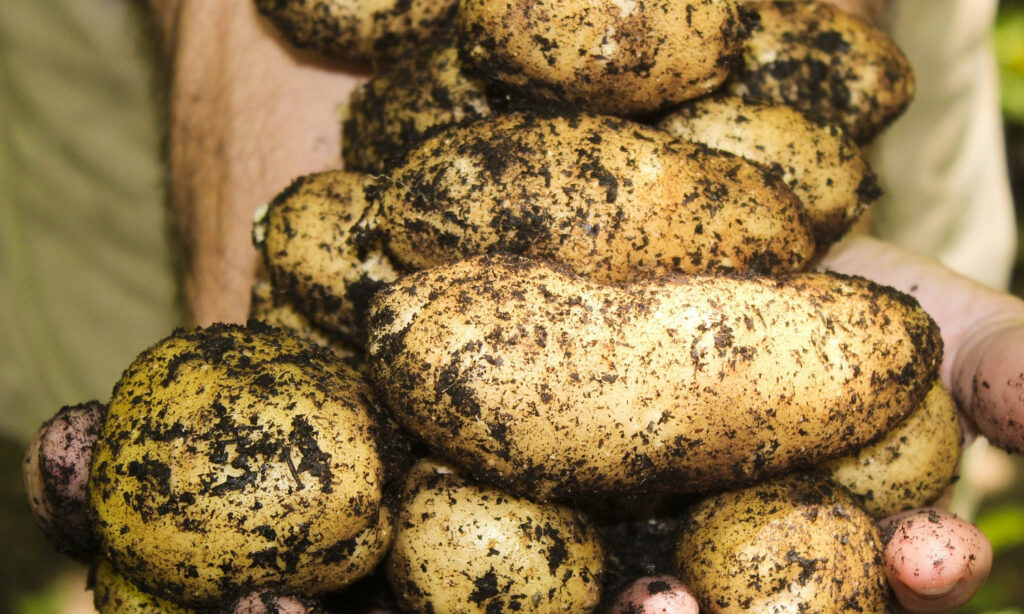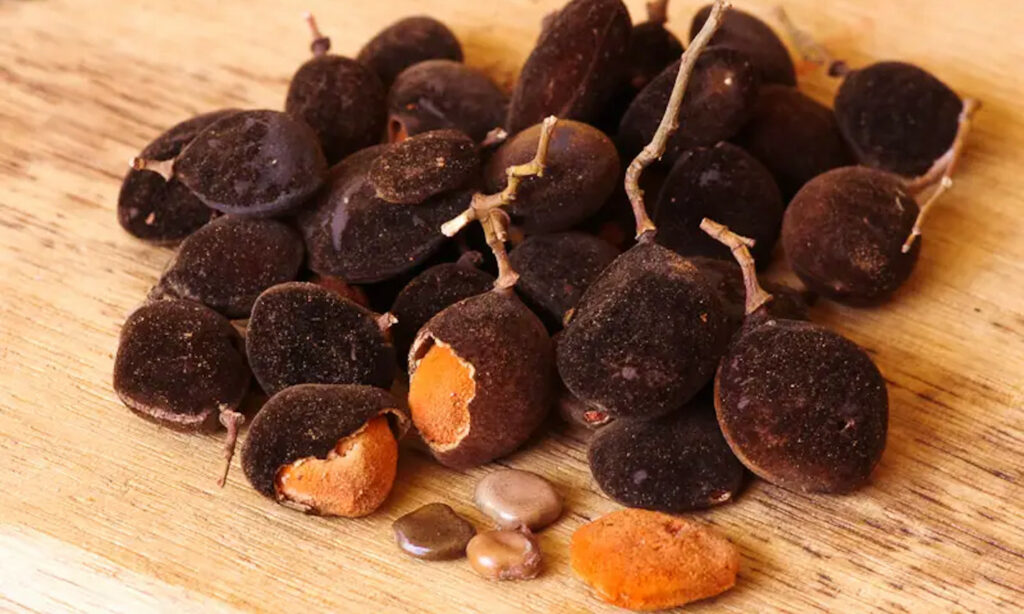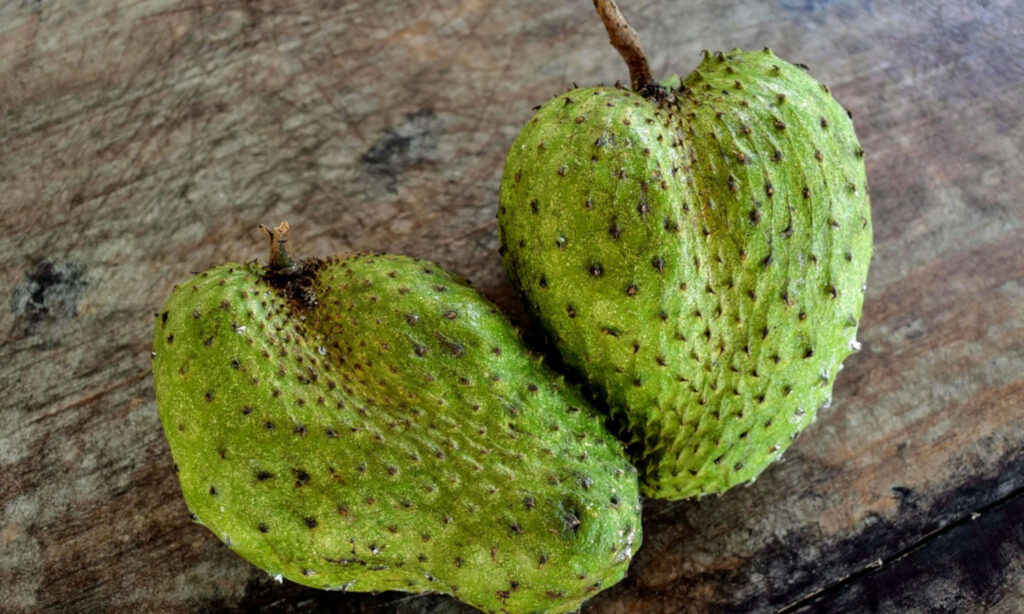In this post we will talk about the benefits and harms of soursop fruit and leaves.
Soursop has many names in Africa and elsewhere.
In Togo it is known as << agnigli >>, in other parts of the world it is called graviola if we have to integrate the name given to it in each dialect, we will make a book about it.
This fruit has many known and unknown virtues that we have compiled in this article.
Some benefits are only experimental in the laboratory but are not yet scientifically proven.
At the end of the section we will talk about the dangers of consuming soursop in excess.
It is important to emphasize this to avoid any excess consumption, especially since its benefits will be greatly appreciated.
Nutritional composition of soursop
Before getting into the heart of the matter which is to know the benefits of soursop on our health, we will start at the beginning. That is to say, know its nutritional composition.
Soursop contains many essential vitamins and minerals, including:
Vitamin B1
Vitamin B2
Vitamin B3
Vitamin C
Folate
Calcium
The iron
Potassium
Magnesium
Phosphorous
Zinc
Copper
Nutrients per serving
If you’re a detail oriented person, we’ll give you the lowdown on how much of the nutrient you can get from each serving of soursop.
A whole fruit provides:
Calories: 413
Protein: 6 grams
Fat: 2 grams
Carbohydrates: 105 grams
Fiber: 21 grams
Sugar: 85 grams
Now that you are served with this useless information (lol) it is time to get to the heart of the matter. What are the benefits of soursop, plant as fruit?
Benefits of soursop fruit and plant.
Packed with vitamin C
Soursop is said to contain a huge amount of vitamin C. The whole fruit alone provides over 215% of the daily amount of vitamin C required by our body.
This antioxidant is known to boost immune health by improving your system’s ability to defend itself against pathogens. It also promotes the destruction of free radicals, which can help protect your skin and cells from environmental oxidative damage.
Contains many antioxidants
In addition to vitamin C, soursop (fruit and leaf) contains many other antioxidants that play an interesting role in our body.
These are phytosterols, tannins and flavonoids. Antioxidants play a role in our overall health and can help protect us against a variety of health problems including cardiovascular disease.
Facilitates digestion
Eating a whole soursop fruit allows you to get 83% of your daily fiber intake. The latter is invaluable for facilitating digestion, but not only that!!
Did you know that fiber also helps prevent obesity, diabetes, cholesterol and colon cancer?
Fiber in the body reduces the rate of absorption of fats and carbohydrates and therefore reduces the need for insulin. Fiber also reduces the feeling of fullness. That is why it is recommended to eat at least 5 fruits and vegetables per day.
With soursop, the number of fruits to consume can be reduced in my opinion!!
Potentially fights cancer
Many laboratory studies have shown that soursop reduces the size of breast cancer tumors and completely destroys cancer cells. To date, no one has confirmed whether this fruit has been able to cure a person who is actually suffering from cancer or not.
Stabilizes blood pressure
Excess sodium in the body prevents the kidney from functioning properly. This causes a greater amount of water in the blood and therefore an increase in blood pressure.
Soursop prevents hypertension by helping the kidneys to better evacuate excess fluids from our body. The potassium it contains balances the amount of sodium in the blood and facilitates the extraction of water from the cells by osmosis.
To prevent hypertension it is recommended to consume fruits containing potassium and reduce the amount of salt in our food. Apart from the soursop fruit, fruits rich in potassium are nuts, avocado, banana and especially dried dates.
Potentially fights many types of bacteria including cholera.
Soursop can protect us and even cure some types of known diseases.
One study found that an extract may be able to kill many types of bacteria, including strains that cause gum disease and cavities.
Another study found that soursop extracts may help fight cholera and Staphylococcus bacteria.
Although these are laboratory studies, the results are promising and further research is needed.
Disadvantage of the fruit
A fruit with many benefits would be too perfect if we did not mention the disadvantages. Like any good thing, any excess is harmful to our body.
In the rest of this post, we will show you the disadvantages and harmful effects of consuming soursop, both fruit and leaf.
In case of excessive consumption
Soursop brings many benefits to our health, but this is not a reason to consume it in large quantities.
Studies have shown that the fruits and the tea made from the leaves can cause symptoms similar to those of Parkinson’s disease.
Studies also indicate that it may interact with blood pressure medications or diabetes medications.
Compounds in the fruit can enhance the effects of these medications, causing dangerous drops in your blood pressure or blood sugar.
Very toxic seed, like that of the orange.
Soursop seeds are very toxic and are not edible. These seeds applied to the skin or certain places in your home effectively play the role of insecticide.
Eating soursop seeds is like drinking insecticide so before eating it, make sure to remove the seeds.
Source : https://www.webmd.com/food-recipes/health-benefits-soursop
If you liked this post, do not hesitate to subscribe to our Newsletter to receive more exclusive content and above all take advantage of good deals.
Let’s stay in touch!








